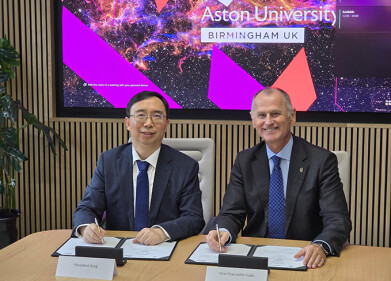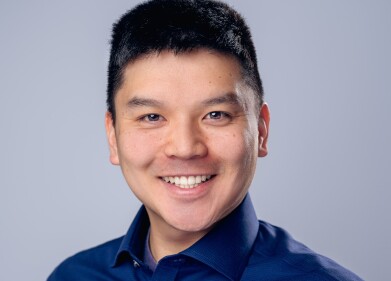Research News
Project demonstrates a reliable physical qubit
Feb 13 2024
A project involving researchers from the universities of Mainz, Olomouc and Tokyo has succeeded in generating a logical qubit from a single light pulse that has the inherent capacity to correct errors.
Despite significant progress in the field, quantum computers are still not at a stage to replace standard computers that have reached the limits of their capacities. Customary computers store information in fixed values of either 0 or 1, whereas qubits can represent 0 and 1 at one and the same time, bringing probability as to their value into play. Known as quantum superposition, this makes them very susceptible to external influences, therefore stored information can readily be lost. Achieving reliable results requires an entanglement of several physical qubits to form a logical qubit, such that if one of these physical qubits fail, the other qubits will retain the information. However, one of the main difficulties preventing the development of functional quantum computers is the large number of physical qubits required.
Concepts being employed to make quantum computing viable include superconducting solid-state systems, but these have the disadvantage of only functioning at temperatures close to absolute zero. With photonic concepts, which work at room temperature, single photons can serve as physical qubits, but because they operate more rapidly than solid-state qubits, they are more easily lost.
The researchers at the University of Tokyo, together with colleagues from Johannes Gutenberg University Mainz (JGU) in Germany and Palacký University Olomouc in the Czech Republic, constructed a photonic quantum computer by employing a laser-generated light pulse that can consist of several photons, like the approach used with superconducting systems.
"Our laser pulse was converted to a quantum optical state that gives us an inherent capacity to correct errors," stated Professor Peter van Loock of Mainz University. "Although the system consists only of a laser pulse and is thus very small, it can – in principle – eradicate errors immediately." Thus, there is no need to generate individual photons as qubits via numerous light pulses and then have them interact as logical qubits. "We need just a single light pulse to obtain a robust logical qubit," added van Loock.
The physical qubit produced at the University of Tokyo is already equivalent to a logical qubit in this system. While not yet of a sufficient quality to provide the necessary level of error tolerance, the researchers have clearly demonstrated that it is possible to transform non-universally correctable qubits into correctable qubits using the most innovative quantum optical methods.
The corresponding research results are based on a collaboration going back some 20 years between the experimental group of Akira Furusawa in Japan and the theoretical team of Peter van Loock in Germany.
S. Konno et al., Logical states for fault-tolerant quantum computation with propagating light, Science, 18 January 2024
More information online
Digital Edition
Lab Asia 31.6 Dec 2024
December 2024
Chromatography Articles - Sustainable chromatography: Embracing software for greener methods Mass Spectrometry & Spectroscopy Articles - Solving industry challenges for phosphorus containi...
View all digital editions
Events
Nov 27 2024 Istanbul, Turkey
Jan 22 2025 Tokyo, Japan
Jan 22 2025 Birmingham, UK
Jan 25 2025 San Diego, CA, USA
Jan 27 2025 Dubai, UAE

.jpg)

















